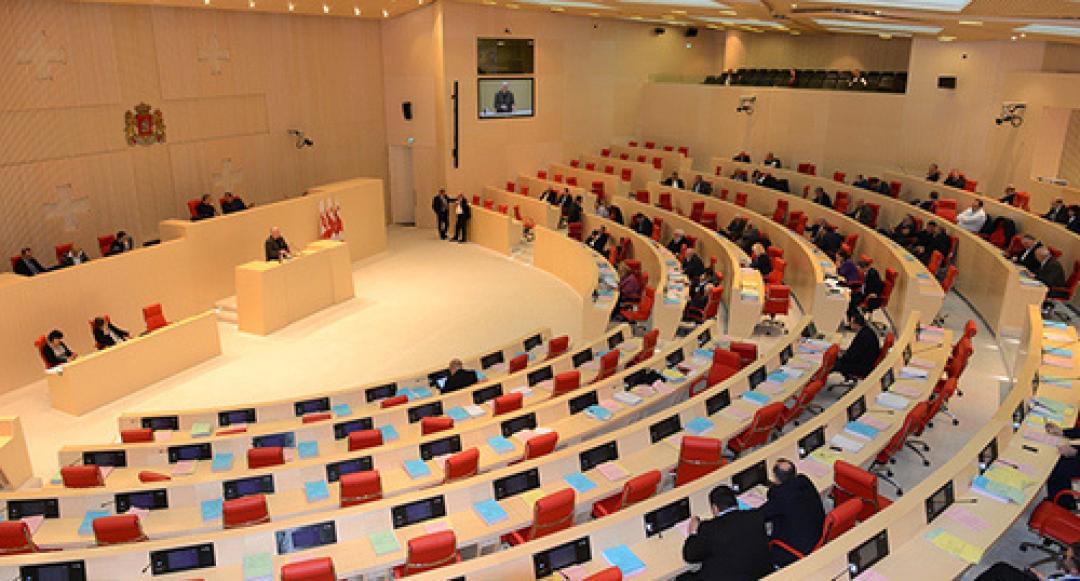
Watchdogs release report on EU-Brokered deal's implementation

Open Society Georgia Foundation (OSGF), International Society for Fair Election and Democracy (ISFED), Transparency International Georgia, and Georgian Democracy Initiative (GDI) have released a joint report on the implementation of the EU-brokered April 19, 2021 deal between the Georgian Dream and opposition parties. The GD withdrew from the accord in July but promised to carry out the measures outlined in the agreement.
Changing People's Attitudes Toward Politicized Justice
The EU-brokered clauses on dealing with perceptions of politicised justice were only partially enforced, according to the Georgian Democracy Initiative.
The opposition's "political prisoners," United National Movement head Nika Melia and shareholder of the government critical Mtavari Arkhi TV, Giorgi Rurua, were both released, according to the watchdog.
Meanwhile, GDI claimed that, even though the Parliament finally passed an amnesty bill for the events of June 20-21, 2019, GD and the opposition were unable to agree on the legislation.
Judiciary Reform and the Rule of Law
The OSGF determined that nearly none of the applicable requirements were followed, and that the ruling party makes judicial and rule of law decisions "behind closed doors."
The Parliament did not implement an "ambitious judicial reform," as required by the agreement, it said. According to the OSGF, the GD only approved modifications to common law before the agreement was signed, and without the input of the opposition or civil society.
Furthermore, according to the OSGF, the Parliament did not implement new guidelines to promote openness and assure merit-based selections of first and second instance judges at the High Council of Justice, the judicial oversight body. It also failed to reorganie the HCoJ in accordance with Venice Commission and ODIHR recommendations, according to the report.
The paper also noted that Parliament has failed to pass legislation defining standards for courts to publish their decisions, noting that the appropriate bill has been postponed and has problematic clauses that would "undermine the goal of openness and accountability."
Parliamentary power-sharing
TI Georgia, which reported on the deal's power-sharing provisions, discovered that none of the EU-brokered power-sharing clauses in the Parliament had been applied.
The watchdog specifically said that no preparations were taken to nominate opposition MPs as chairpersons of five parliamentary committees, including two of the following: Procedural Issues and Rules, Legal Issues, Human Rights, Budget and Finance, along with Foreign Relations.
Furthermore, according to the report, an opposition legislator was not allocated to any of Georgia's delegations to the Euronest Parliamentary Assembly, the EU-Georgia Parliamentary Association Committee, the Parliamentary Assembly of the Council of Europe, or the OSCE Parliamentary Assembly.
Reform of the electoral process
According to the ISFED's Electoral Reforms chapter, stipulations for holding the next two parliamentary elections entirely proportionately and with a 2% threshold, as well as lowering the number of MPs necessary to constitute a parliamentary group from seven to two were partially met. So yet, the required constitutional amendments have barely crossed the first barrier.
Georgian MPs met their obligations on increasing proportional representation in local councils, lowering the election threshold in local elections, introducing a 2/3 majority vote for the chair and professional members of the Central Election Commission, and defining the criteria for recounting ballots, according to the watchdog.
Georgia partially implemented a rule allowing all 9 parties that cleared the 1% barrier in the 2020 general election to designate a member to the CEC, according to ISFED.
It was pointed out that modifications permitted European Socialists, which is made up of former Alliance of Patriots (AoP) members, to designate a member to the CEC instead of the AoP, despite the former party's absence from the legislative elections.
The watchdog also noted that the requirement to alter the contentious bill depriving boycotting opposition parties of money had been largely met. Parties might still lose state support if half or more of their MPs resign or if more than half of their MPs do not attend more than half of plenary sessions, according to the legislation.
See Also


Armenia Records 5.9% GDP Growth in 2024, Missing 7% Goal

Yerevan Balances Strategic Ties with Both US and Russia, Says Foreign Minister

FM Mirzoyan: Peace Deal with Azerbaijan Is Within Reach

Pashinyan and Erdogan Hold Call, Reaffirm Commitment to Ongoing Dialogue

